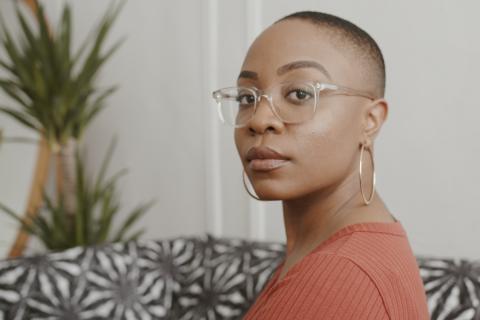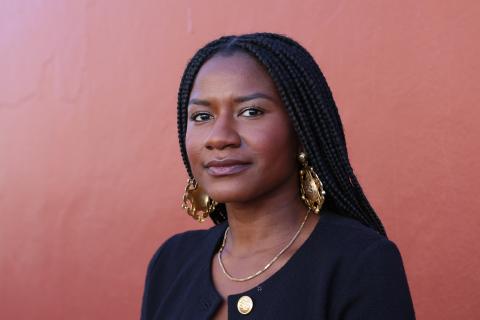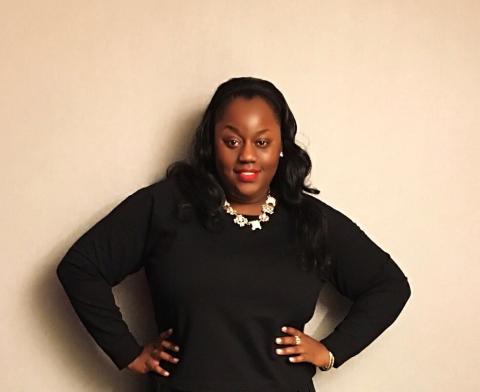
They narrated that from 2015 until 2020 while working under Oke, they were subject to “a lack of support and resources, below-market salaries, inadequate leadership, targeting and sabotage, slander, verbal abuse, inappropriate behaviour, gaslighting, lack of empathy, manipulation, rationalising poor or unethical conduct and wrongful termination.”
On June 23, Black female ex-employees came forward via Twitter to detail their experiences about a toxic work environment under the leadership of Abiola Oke, the former Chief Executive Officer and Publisher, and current Editor-in-chief, Rachel Hislop, of Okayplayer and OkayAfrica brands.
They narrated that from 2015 until 2020 while working under Oke and Hislop,they were subject to "a lack of support and resources, below-market salaries, inadequate leadership, targeting and sabotage, slander, verbal abuse, inappropriate behaviour, gaslighting, lack of empathy, manipulation, rationalising poor or unethical conduct and wrongful termination."
The ex-employees are Antoinette Isama (Arts and Culture Editor, OkayAfrica), Oyinkan Olojede (Marketing Manager, OkayAfrica), Hanan Osman (Operations/Executive Assistant to the CEO, OkayAfrica/Okayplayer), Sinat Giwa (Director of Events and Activation, OkayAfrica/Okayplayer + Program Director, Okay Space), Winnie Kassa (Executive Assistant to the CEO + Special Projects, OkayAfrica/Okayplayer), Olabisi Famakinwa (Senior Buyer, OkayAfrica/Okayplayer) and Ivie Ani (Music Editor, Okayplayer)
In this interview with SaharaReporters, Ivie Ani, Oyinkan Olojede and Antoinette Isama shed more light on the issues.
What were the things you felt were inappropriate in the organisation?
Antoinette

There was mainly a lack of system in the organisation contrary to what one would see in a typical newsroom. There was no editorial structure, and that was a red flag for me. The then CEO (Abiola Oke) interfered in the editorial space even though his role was outside of that.
Ivie
Because I also worked on the editorial for OkayPlayer, my experience is similar to Antoinette's. There were many red flags when I first signed on. The main red flag was the lack of infrastructure and the lack of resources. We were hired to do a job, but we really could not execute them efficiently owing to some challenges.
There were just many red flags; like being told to use my laptop on my very first day in the office. Simple tools that every editorial team should have were not given to us.
Everything I tried to do was met with conflicts, whereas, in a regular newsroom, it would be standard practice. The company had the semblance of startup culture that just trickled down and presented itself through poor leadership strategy, lack of communication, lack of resources, and lack of operational hands. These affected us on a day-to-day basis.
Oyinkan
Overall, there was not only a lack of infrastructure; there was a lack of accountability and a lack of system in place. There was also a sort of pushback and resistance.
Can you tell us more about your personal experience with Abiola Oke?
Ivie
The editorial team didn't work directly under Oke but there were moments that he inserted himself into the editorial space, which was quite the contrast to what a typical CEO would do.
Our requests (editorial support, resources, staff writers, malfunctioning website) were always ignored. They were met with conflict or lack of compliance from Oke. He would refer to himself as a journalist despite having no journalism or media experience.
There were instances where we needed to cover significant events but were not granted press passes whereas Abiola would be present at many events, especially major ones.
Opportunities that should be presented to staff writers or editors were not given to us. I remember there being confusion externally about the editor absent from certain events, yet the CEO would be present, and there was nothing to show for it on the website. It just trickles down to the experience of one not being able to do one's job properly.
Oyinkan
It was sort of a constant battle. There were a lot of things that had to be managed. We witnessed the manipulation of employees who were directly challenging him (Oke) —the issues in question were aimed at improving the workspace and brand representation. They were questioning the decision that was made and it would result in backlash. He would say, "It's not your place to question or tell me what to do." That was the kind of environment that was created.
Were any of you sexually harassed?
Antoinette
None of what we detailed in that thread mentioned sexual harassment; what we said was that he lacked the quality to be a good leader and he was distracted.
Oyinkan
None of us as former employees ever came out to accuse him of harassment or assault of any kind. He puts that in his statement. I'm not sure where that came from but it's not what any of us said.
What we spoke about was inappropriate behaviour; the way women were talked about, the way we were spoken about among his friends and things of that nature that were inappropriate. What we had detailed were the behaviour that we see make up the profile of a predator.
Ivie
Everything we outlined was specific. There is only one thread of inappropriate behaviour, which Abiola has referenced in his statement that confused people. What we laid out was that an unchecked workplace environment could lead to different types of harm outside of the workplace and within the workplace.
What we experienced, in terms of a toxic work environment, manipulation and sabotage, are traits that you can liken to predatory behaviour outside of this professional space. Some have come forward with sexual assault against Abiola but we never accused him of that.
Can you be a little bit more specific about the kinds of toxic behaviours he exhibited?
Ivie
One of the threads referenced inappropriate DMs and comments made towards employees
Was Abiola particularly harsh to women or did that generally to the employees?
Ivie
The demands of women in the company were different from the demands of men.
Women were expected to be the face of the company; the same (expectation) was not placed on men. Women outnumber men in the company.
We were the face of the company but we didn't receive extra compensation for that specific role. The men were subject to different kinds of treatment but most of the men in the company are in high ranking positions, so the demands and procedures were different.
Do you think the leadership of the company acted too late in addressing these complaints?
Antoinette
I spoke several times to the editor-in-chief about my concerns and grief. They promised change, and ultimately, there was no change. Because of that, I learnt that they were inclusive in making this type of leadership and behaviour continue for so long. It is disheartening that it took the current administration some time to acknowledge our story and demands from the first statement on June 23. But it took one woman speaking out anonymously about her assault by Abiola for them to take action. Their attitude shows that there is a lack of care.
Ivie
Since we left, efforts have been made both internally and externally to bring this up but it has been denied. Yes, they did act so late.
Oyinkan
At this point, they have yet to address us publicly or privately.
What's your take on the perception that Black-run/owned businesses are inherently better for Black people?
Ivie
I don't think so. People believe the solution to this problem is to establish in every company black leadership; we see that does not work. People think we should replace men with women; we understand that it does not work.
More deep-rooted issues need to be addressed. So long that this same hierarchy is in place, it does not matter how the person at the top looks. There will always be someone at the top and more people at the bottom being exploited.
Everyone has different perspectives as to whether or not we need corporations at all. Some people even believe all corporations should be abolished. Some people also believe capitalism should be abolished. I think we should look at how we model our labour practices, stateside and globally. Why are specific people being exploited, overworked and underpaid? I believe that is what we need to evaluate.
Oyinkan
Replacing someone is not going to change the system. When it comes to the board and executive, they are complicit. It demonstrates how the whole system works together to keep someone like him (Abiola) in the position of authority at the expense of everyone below him.
If the company wants to address this, they need to take a look at the full structure. We have seen this in other media and companies.
There is a system in place. That system ensures the maintenance of the current status quo, which results in people being oppressed. If you want to address the issue, it needs to go beyond more than one individual who has exhibited inappropriate and manipulative behaviour to step down. You need to address the system that allows him to be there in the first place. You have to ask why this individual, and others like him across different companies, are put in this position. You need to go to the beginning to change it.
What are you doing with other people in society to ensure that other victims are courageous to step out and make their voices heard?
Ivie
Staying silent does not help anybody. I wanted people to be aware that these things happen. This is beyond all of us now. It brings attention to a more significant issue, which no one has to go through. People should try to push that fear, share their story and they will make an impact.
Oyinkan
What was essential for us was coming together to support one another but more so is our collective community. They rallied behind us to amplify the story. People that we have worked with know our integrity and what we contributed to OkayAfrica across the board. We all worked across different sides of the brand. People that see the brand know that we are behind the work. The current system does not have what it takes to call for accountability when this kind of behaviour occurs. We are just simply asking for accountability here. We also stand with people who want to speak out. We are here to amplify their stories as well. We know that working together will help the business as well.
Do you plan to go back to OkayAfrica if the opportunity is presented again?
Antoinette
We included that in the statement because there are still some of our peers who work there. We don't want to see the company go up in flames and not only for them but for the work that we contributed as well. OkayAfrica is a necessary space that we need to tell African stories on a global scale. That is something that we are keeping in mind.
What are you all trying to do next?
Oyinkan
What is important for us is getting proper resources and care for women who have been violated, assaulted and coerced by Abiola Oke. We are working with specific partners in the community to help us with that. We have endured a lot of emotional trauma and financial loss. We want to see the change that we devoted our time to develop. We want to give support to other women and colleagues who are facing similar issues within the workplace.
What advice do you have for women facing similar issues in the workplace?
Antoinette
For starters, I want women to know that these issues are not normal, even though it is spelt out to be normal. It is a big issue. Whatever that is nudging you, trust your gut that you do not have to stand for this kind of behaviour.
You are not obligated to stay there and you have the chance to use your voice to talk about it. We don't do enough in our community. All we did was to share facts on Twitter and it brought about a significant change. Know that you have a voice; no one can shake you or stop you.
Ivie
Since we have come forward, so many people have contacted us. They said they never saw someone experience what they went through in the workplaces because they didn't know there is a language to describe it. It speaks to the fact that this behaviour has become normalised and this shouldn't be.
If many women have gone through this, we need to address it. We cannot wait until it leads to assault or physical harm to address it. That is what many people do.
We cannot wait until the behaviour escalates to a different type of harm. The types of harm that we experience in the workplace, just because it was not an assault, don't mean it is not valid.
Other women in the media space should understand that what they think is nothing could lead to something. If we don't stop it, we will continue this way and we shouldn't.
What has the experience taught you?
Oyinkan
What we have learnt and saw in the past as a group collectively is that many people protect the system of misogyny, assault and rape culture. These are not just the people perpetuating this but also the people who stay silent; they would instead protect their friend and social status.
Many people are afraid to speak out because of that; because of the idea of bringing down a black man instead of holding someone accountable for their actions. There are lots of disappointments but it is also to be expected within the system because there are specific measures in place but silence makes it thrive. It is the silence that keeps many in the predatory behaviour and Abiola in the position of authority.



OkayAfrica Reacts
In the last few weeks, we have heard our former employees as they expressed the shortcomings of the work culture in the Okayplayer and OkayAfrica offices.
As we get back to publishing and forging a new path forward with all critique in consideration, we are committed to continuously re-imagining our company structure and values for all creators, our audience, and the creatives we dedicate this space to amplifying. We ask that you bear with us as we work to make these changes.
As an external investigation into our workplace culture and the allegations made is underway, we will continue to chart our development, advancements, and fair practice initiatives while we work as a collective staff to rebuild our company and ensure our livelihood and professional contribution to society.